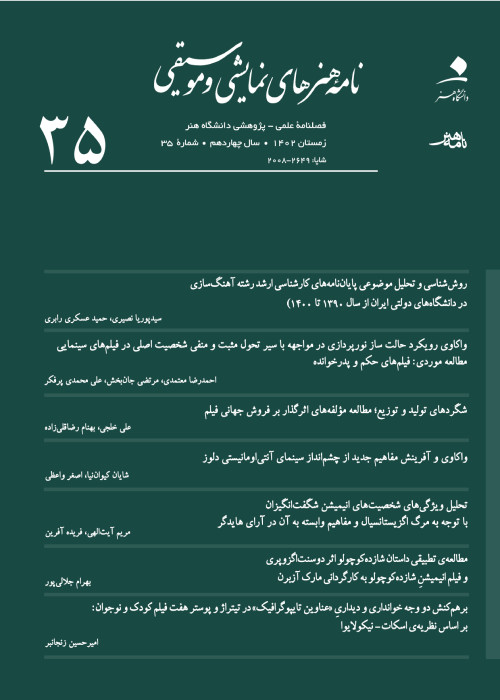A Study on Heidegger’s Boredom in the Béla Tarr’s Cinema
Boredom in Heidegger's philosophy is known as a mood, which is attuned in “Da Sein” and becomes an attunement (State of Mind). A kind of attunement is the one constantly trying to escape it by using banality and everydayness. A kind of attunement, which has a deep capacity to reveal being to the one as a whole, like anxiety mood. Heidegger introduces three types of boredom and unlike the third type; the first two forms are superficial and can be created in the human’s attunement. But the third type of boredom is the profound one which can not be created in one’s attunement because the third type of boredom does not depend on other beings. Heidegger also explains that all three types of boredom are fluid in each other and one type can lead our “Da Sein” to other types of boredom. In this research, we assumed that Béla Tarr creates the first two forms of boredom in his audience’s attunement by using cinematic visual possibilities such as framing, camera movements, etc which are based on Heidegger’s boredom patterns to eliminate the banality and everydayness of audiences and put them into the deep boredom (the third type) in his films to reveal the concept of Being to them and make them face their Being especially in these two films: The Satan Tango and The Turin Horse. In this research we analyzed Heidegger's boredom patterns of “Da Sein” and as a result, we established cinematic boredom patterns to analyze Béla Tarr’s films. Among Béla Tarr’s movies, two films, The Satan Tango and The Turin Horse were chosen because of their obvious boredom patterns. by analyzing these two films, it became clear that forasmuch as " expectation " is the main characteristic of structural moments of boredom and this expectation is not being met, an absence can be formed which creates existential emptiness in the situation emptiness. This existential emptiness causes existential boredom and to overcome this boredom Tarr’s audience is forced to encounter their being.
Heidegger , Boredom , Béla Tarr , Satan Tango , Turin Horse
- حق عضویت دریافتی صرف حمایت از نشریات عضو و نگهداری، تکمیل و توسعه مگیران میشود.
- پرداخت حق اشتراک و دانلود مقالات اجازه بازنشر آن در سایر رسانههای چاپی و دیجیتال را به کاربر نمیدهد.



